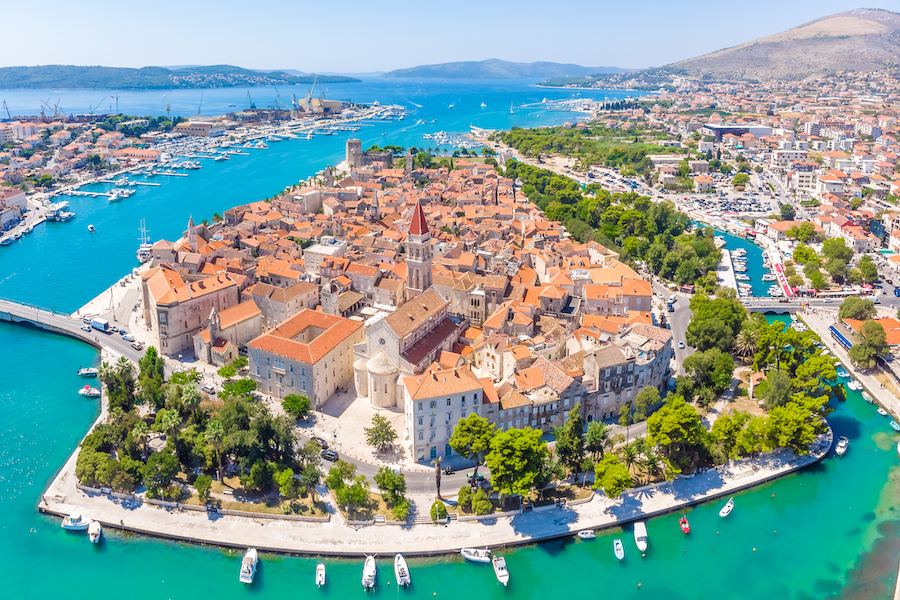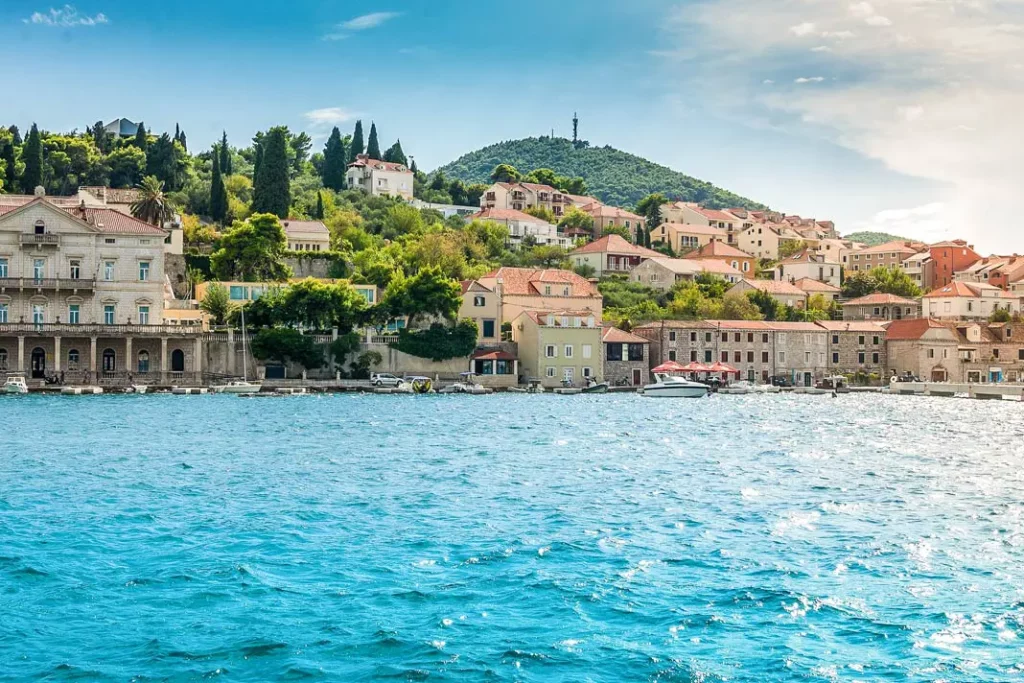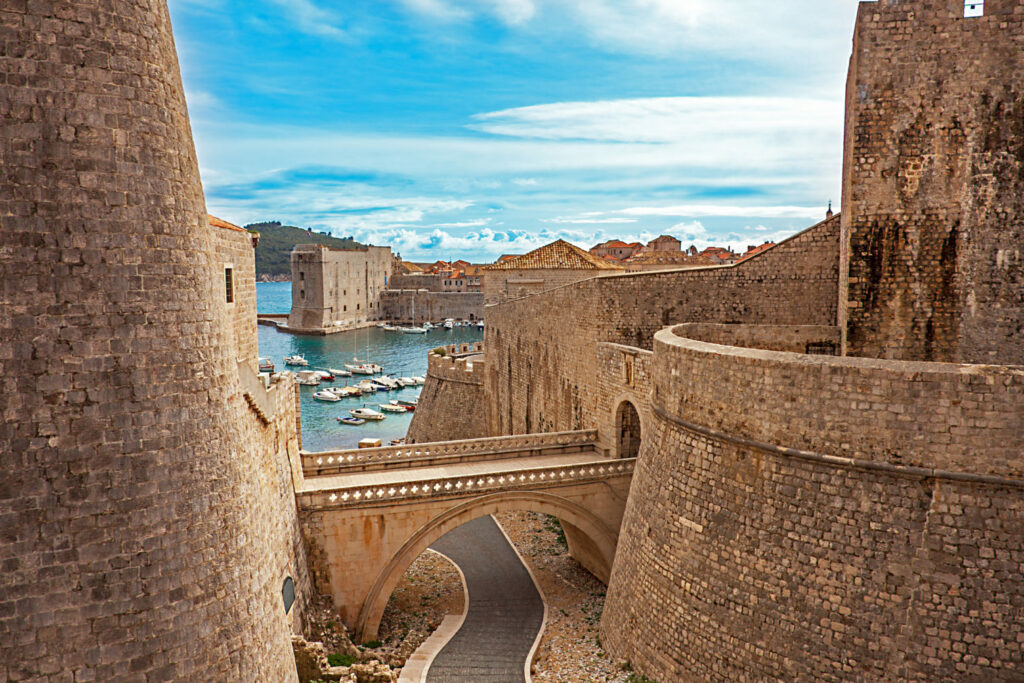Living In Croatia Expat Guide part 3 – Here can be found Part 1 and Part 2.
Pros and Cons of Living in Croatia
Living in Croatia can be extremely difficult, boring, or rewarding, depending on a person’s perspective. Also, there are many great things about living here, but also some downsides as well. The opportunities available to you here are by far more limited than they would be if you lived elsewhere.
Being a member of the European Union means that people from other parts of Europe have a broader range of opportunities available to them while living in Croatia as an expat. That being said, we will walk you through the pros and cons of living in Croatia as an expat in this section. Check it out below!

Pros
1. The Weather
One of the first things people tend to mention when talking about Croatia is the weather. And it’s no wonder – with over 2,000 hours of sunshine per year, it’s easy to see why so many people are drawn to Croatia’s Mediterranean climate. The temperatures are also very pleasant year-round, making it a great winter getaway or summer holiday destination.
2. The Food
Croatia is known for its centuries-old winemaking traditions, but did you know that Croatia has cultivated olive trees since Roman times? This means that the country’s delicious olive oil, which can also be found in many of Croatia’s local dishes, has been enjoyed by locals for thousands of years.
3. The Beauty
Many things make Croatia a wonderful country, but its coastal cities are one of the biggest attractions in the region. Take Zadar, Dubrovnik, Split, and Pula, for example – all of these popular coastal destinations show off Croatia’s stunning coastline and beautiful architecture.

4. The Beaches
With over 1,200 islands and nearly as many kilometers of coastline, Croatia is a popular destination for those who love to lounge on the beach all day long! Whether you’re looking for some fun in the sun with your family or just want to relax with a good book and cocktail, there’s a beach in Croatia for everyone.
5. The Culture
Croatia is home to a rich and diverse culture that its many different influences have shaped over the years. From Roman ruins to Venetian architecture, there’s no shortage of things to see and do in Croatian culture.
6. The Relaxation
Croatia is the perfect place to relax and unwind. With its peaceful beaches, delicious food, and stunning countryside, it’s easy to see why people love spending time in Croatia. As an expat coming to this country for the first time, you’ll undoubtedly enjoy living in this country compared to others you’ve visited.
7. The Cost of Living
Compared to other popular European destinations, Croatia is a relatively affordable place to live. This makes it an excellent option for those who are looking for a more affordable holiday getaway or retirement destination. In fact, you’ll be able to save and enjoy your lifestyle as an expat while living in this country.

Cons
1. The Bureaucracy Can Be Frustrating
The Croatian bureaucracy is to be avoided at all costs for one very good reason: everything has to go through the government. And it takes forever because of all the ways they’ve found to complicate things further than they need to be, so you might as well not do anything unless you want it done right.
The best example of this is the registration office. They will make you wait for hours at a time, do mind-bending stupid things, and generally drive people crazy with their incompetence.
2. Croatian Drivers Are Terrible
Croatian roads are challenging to navigate even for locals who have driven on them every day for many years, so a foreigner drunk with their newfound freedom is bound to crash a car or two and probably cause some fender benders while learning how to master the opposite-side driving. If you manage not to hit anyone while driving in Croatia, consider yourself lucky.

3. The Food Is Bland, Overpriced, And Inconvenient
The food in Croatia isn’t bad, but it’s not exciting either unless you are really into the meat. If you are a vegetarian or vegan (or raw vegan), prepare to be disappointed. You can find some good fruit and veg at the open market places like Dolac in Zagreb, but the prices are usually high. Like most other things in Croatia, food is expensive here. If you stick to home-cooking, though, it’s not so bad.
4. You, Will, Have to Learn How to Speak Croatian
This one might come as a surprise for some expats who have already been through the Croatian bureaucracy and came out unscathed. But when it comes down to actually fitting in with the locals, you will have a much better time if you learn some conversational Croatian.
And that means learning how to read and write, too (the Latin script is not very complicated). If you don’t plan on getting a job here, then learn how to order food and maybe buy a drink or two. It’s not that bad.
5. You, Will, Have to Deal with Discrimination
Croatia is mainly a white country, and it’s known for having some seriously racist tendencies. Especially the elderly and those under 50 grew up with socialist values that glorified “brotherhood and unity” all across Yugoslavia.
Everyone else isn’t as wrong, but there are still noticeable differences in how people treat you based on your appearance. If you are visibly non-white, expect to be treated with suspicion or hostility in some cases.
6. The Internet Can Be Unreliable
One thing that often frustrates expats and locals alike is the poor quality of the internet in Croatia. This is especially true in the countryside, where many providers offer prolonged speeds and limited or no coverage. If you rely on the internet for work or school, this could be a major source of frustration.
7. Not all areas of Croatia are safe
Although most large cities in Croatia are generally safe to walk around, it’s essential to remain vigilant when visiting smaller towns and villages. There are still some areas in Croatia that have high experience levels of crime, particularly certain parts of Zagreb (including Skenderija) and Dubrovnik (such as Lapad).
Frequently Asked Questions about Living in Croatia

What is the cost of health care in Croatia?
Health care costs in Croatia vary depending on your health insurance plan and the services you require. However, as a general rule, you can expect to pay between €80 and €100 per month for health insurance. For uninsured procedures that are necessary but not critical, you can expect to pay between €150 and €500.
How are employment opportunities like in Croatia?
The unemployment rate in Croatia is currently at 17%. However, the country has recently voted to leave the European Union, so many employment opportunities are expected to open up in the next few years. In the meantime, several sectors offer employment opportunities, including tourism, agriculture, and manufacturing.
How safe is Zagreb?
Zagreb is generally very safe during the day, but after dark, it becomes less so because of pick-pockets. As a rule, you should avoid walking alone at night and use common sense to protect yourself.
Conclusion
With its stunning coasts, ancient architecture, and cultural heritage, Croatia is a country that genuinely has it all. The Croatian government also makes a living there as easy as possible for foreign residents looking to relocate. So, you don’t have to keep surfing the internet as all you need is on this platform.


